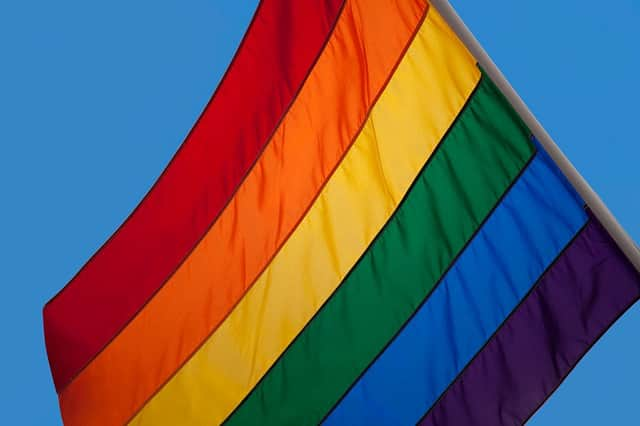February is LGBT+ history month - what you need to know and how to take part


With a grey and dismal January behind us, it’s time to celebrate the colourful history of the nation’s LGBT+ community.
Every February the UK comes together to celebrate the history of its LGBT+ citizens, and this year’s schedule is jam-packed with fun and informative online events, with resource packs also readily available.
Here’s everything you need to know about this year’s event
What is LGBT+ history month?
Advertisement
Hide AdAdvertisement
Hide AdLaunched by the Schools Out charity in 2005, the event is credited with increasing the prominence of LGBT+ matters and figures in the curriculum of UK pupils.
The event was created in the wake of the abolition of Section 28 which stated that local authorities "shall not intentionally promote homosexuality or publish material with the intention of promoting homosexuality”. The act was repealed in Scotland in 2000, and repealed three years later in England and Wales.
The month-long celebration aims to increase the visibility of the country’s lesbian, gay, bisexual and transgender people, with schools encouraged to teach pupils about the history of related civil rights movements and current matters affecting the community.
The celebration has three taglines 'Claiming our past. Celebrating our present. Creating our future.’
What’s different about this year and how can I get involved?
Advertisement
Hide AdAdvertisement
Hide AdSince 2014 the celebration has introduced the Faces For the Year celebrate the life of a famous lesbian, gay man, bisexual and trans person.
This year Lily Parr, Mark Ashton, Maya Angelou, Michael Dillon and Mark Weston are all being recognised as the 2021 Faces For The Year.
The theme of this year’s event is “Body, Mind, Spirit”. Resources relating to this year’s theme can be found here.
A full list of events can be found at lgbthistorymonth.co.uk.
What does LGBTQIA mean?
Advertisement
Hide AdAdvertisement
Hide AdLGBTQIA stands for Lesbian, Gay, Bisexual, Transgender, Questioning, Intersex and Asexual.
Outright International defines Questioning as a term for “someone who is not sure how they identify. Someone can be questioning their sexual orientation and/or their gender identity.”
It defines Intersex as “people who naturally have biological traits which do not match what is typically identified as male or female”.
Asexual is defined “an umbrella term used for individuals who do not experience, or experience a low level, of sexual desire”.